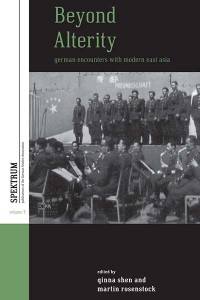Ilinca Iurascu has published a journal article entitled ‘Annoncenliteratur’: Kleist, Fontane and the Rustle of Paper in Oxford German Studies, Vol. 43, No. 3: 246-261.
Abstract
Critical discussions of German realist literature over the last few decades have repeatedly examined the intersection between publicity, audience formation and literary production, especially in the context of the boom of the popular periodical press in the latter part of the nineteenth century. Much remains to be said, however, about the specific role newspaper advertising strategies played in the construction and redefinition of literary modes and categories. In a trajectory that leads from Kleist to Fontane, this essay argues that public notices and classified ads from newspapers and journals become, over the course of the nineteenth century, literary subjects in their own right, allowing for new narrative and expressive strategies and signalling dramatic changes in the conditions of epistolary communication ‘im papiernen Zeitalter’, as turn-of-the-century cultural historians have called the era of industrially produced paper. Whereas the ‘Intelligenzblatt’ and the want ad from Kleist’s ‘Marquise von O…’ define the act of communication as an extraordinary event, an ‘unerhörte Begebenheit’, the letter in the age of ‘Annoncen-Expeditionen’ becomes a trivial, mundane object, whose end-point is symbolically marked by a wedding notice in Fontane’s ‘Irrungen, Wirrungen’.
The new DVD Beethoven’s Duet, released by the DEFA Film Library features two never-before released films: Beethoven – Days of a Life (1976), a biopic directed by Horst Seemann and Ludwig van Beethoven (1954), a documentary directed by Max Jaap.
Special features include an essay by Kyle Frackman, “A Genius of Our Own: The GDR and DEFA’s Beethovens.” The essay is a critical commentary on both films in the context of East German glorification of “humanistic cultural heritage.”
The 1950s documentary asserts the GDR’s cultural relevance while showcasing Beethoven’s links to socialist philosophy while the 1970s biopic shows a flawed human artist in his personal complexity.
The essay can be viewed in ciRcle.
Markus Hallensleben


Dr. Hallensleben has published a book chapter entitled “Rewriting the Face, Transforming the Skin, and Performing the Body as Text: Palimpsestuous Intertexts in Yōko Tawada’s “The Bath” in Beyond Alterity: German Encounters with Modern East Asia. Eds. Qinna Shen and Martin Rosenstock. Vol. 7 of Spektrum: Publications of the German Studies Association. New York; Oxford: Berghahn, 2014. 168-89.

